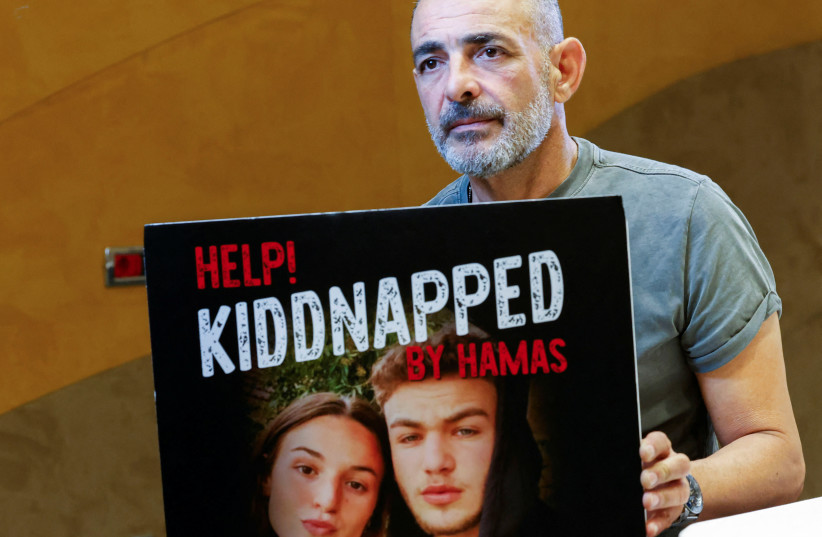Israeli Maya Regev lay badly wounded in a nondescript house in Gaza, her leg mangled from a gunshot, under orders not to make a sound.
The 21-year-old begged her captors to let her younger brother Itay, who was being held in a room nearby, join her while the bandages on her leg were replaced.
It was days after Hamas terrorists rampaged through southern Israel in a killing and hostage-taking spree on Oct. 7 that triggered the war in Gaza. The siblings were shot and wounded as they tried to flee an outdoor music festival turned killing field. They were thrown into a pickup and taken away with their friend, Omer Shem Tov.

Itay, 18, told how days earlier, a "scared and sweaty doctor" painfully removed the bullet from his leg without anesthesia while he was instructed to remain quiet or be killed.
Maya's injury was more severe, and she says she was eventually snuck into a Gaza hospital. Her dangling foot was re-attached in surgery, but sideways, at an unnatural angle. She gave her interview in a wheelchair, her leg in a cast.
The Regev siblings were among more than 100 hostages freed in a week-long ceasefire in late November. Shem Tov remains in captivity with nearly 130 others. Some have been declared dead in absentia by Israeli authorities.
While being treated in the hospital, Maya said she was kept near another wounded Israeli hostage, Guy Iluz. The two spoke about returning home - what they would do, what they would eat. But Iluz died in the hospital.
<br>'I have duty to go speak to his family'
"At first, I refused to believe. Before they took him away, I said I have to see, like, that it's really him. I have the duty to go speak to his family when this is over. I'm the only person who knew what really happened to him."
Itay said that he and Omer, in the meantime, were taken to a different house and forced to dress as Muslim women so they wouldn't be recognized as they walked in the dark of night.
From the hospital, Maya wrote her brother and Omer a note and asked it be delivered. She said she argued with her captors, demanding that she hear back.
Itay received it.
"They came one time with a note, a note from Maya, in which she wrote me where she is, what she is going through. She said she loves me, asked me to stay strong, for the family, for everyone," he said.
He sent a response.
"They brought me a note that they (Itay and Omer) wrote me, and I knew it was really from them because I recognized the handwriting and my brother called me by my nickname," Maya said.
Itay calls his sister Patcha.
"It was a light, a small light in all the darkness, that I hear from my little brother and from Omer, that I understand they are ok."
They continued corresponding.
"Those notes gave so much strength, like in the small moment that I feel a bit like I am diving into bad thoughts, I just held Maya's note, read it like ten times, and it would give me strength," Itay said.
Since the brief ceasefire, Israel has pushed ahead with its devastating campaign in Gaza, saying that military pressure is needed to free the remaining hostages.
Qatari and Egyptian mediators have been trying to broker a deal that would include a pause in the fighting and the release of more hostages.
Itay was separated from his friend, only to find out later he had been included in the list of hostages to be freed.
"If I had known I was going home, I can tell you that probably I wouldn't agree to leave without Omer," he said.
Their story is not over yet, he added. "Even though Maya and I are home, Omer is still there."
